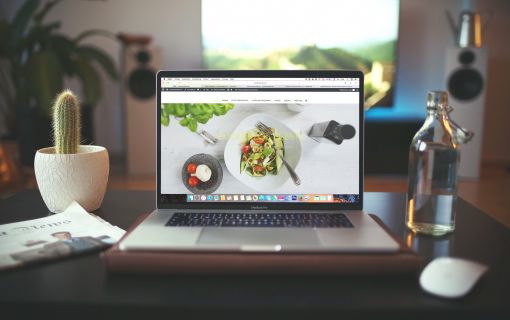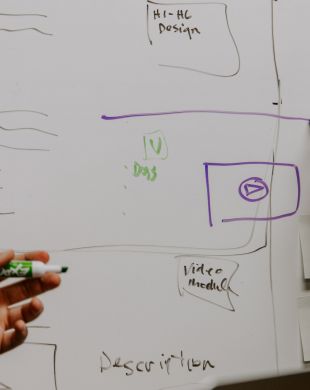The Grocery Sector's Future in Post-Covid Ireland
4th August 2021 |

Listen now: https://www.newstalk.com/podcasts/taking-stock/the-future-of-the-grocery-sector-in-a-post-covid-ireland
Retail expert and Apricot client James Burke, from James Burke & Associates, was a guest on the popular podcast Taking Stock, hosted by Gavin McLoughlin. The pair discussed the current state of the grocery sector and its future in light of the effects of the pandemic.
Host Gavin McLoughlin cited a recent article in Reuters asserting that online grocery sales in the UK fell 2.6% in the 4 weeks to July 11, the first-ever fall in the sector, while the online share of the grocery market fell from 13.4% to 13.3%. He asked James Burke, from James Burke & Associates what he made of it as a retail expert in this area. Burke began by citing the public fear for going out that came with the beginning of the COVID crisis, saying “Consumers went online in very large numbers and I think that was never sustainable because…the market doubled for food…so it was an artificial high.”
Burke referenced an interview with Amazon that said that the world has fast-forwarded its online shopping habits by five years in a matter of 18 months due to the pandemic pushing consumers to change their shopping habits. “Now there’s a more natural settling occurring but [the market is] still way far ahead.” The doubling of the market share in Ireland in a year- where online was 2.7% of the grocery market in January 2020 to 5.2% a year layer. The level is lower in Ireland than it is in the UK, but Burke imagines it will plateau.
He said, “That backdrop…that in the Irish market we have been slower to embrace the online grocery shopping. There’s probably a historic preference to touch and feel and smell...There will always be a higher percentage of people that…find it an easier way to do it than online.” And Ireland has been remarkably behind the global pattern, though the UK’s 15% figure might be lower than expected. “Even though the number is small,” Burke said, “the number of people involved is very big.” He mentioned a story he read about a retailer who had to arrange for hundreds of thousands of new deliveries a day by hiring some 40,000 delivery drivers.
Burke maintained that all retailers struggled initially with their individual reactions to the pandemic. Some who had no online delivery option had to scramble to develop it on the fly, while others who had established delivery options online had to deal with a huge influx of orders, finding themselves grossly under-prepared to cope with the volume. Necessity had prompted live trials like click and collect, small scooter delivery services, and more.
Direct online buying from producers is also going up, according to Burke, saying that because the habits of the consumer have changed, both retailers and producers are finding it easier to open online doors to their businesses than ever before.
Gavin McLoughlin asked Burke where he saw in Ireland in 10 - 15 years' time, wondering if Ireland would hit the UK’s 13% would be the magic number. Burke responded that he thought a quarter would be a safe bet. “Go forward 5 - 7 years and you would probably see a quarter, but there will always be a role for physical shopping,” Burke mentioned the retail entertainment model with a market inside a supermarket for the butcher counter, cheese area, bakeries, and more. There is now a re-invention of these ideas, as several of the retailers are adding these counters to their supermarkets, or on the other side, offering excellent value in pre-packaged items, doing away with the market structure, and focusing solely on price and accessibility.
The UK chain of grocery stores, Morrison’s is being chased by a private equity market, as Morrison’s owns the freehold of its stores, giving opportunity for investment and development into something beyond the scope of a simple supermarket. The logical view of the property, site by site, adding apartments and offices up above sets them up to make a large amount of money. A market geared toward borrowings can prove disastrous for select retail holdings because it can end up bankrupting the supermarket. However, it can be a logical step for a chain like Morrison’s to take. Burke said, “Supermarkets by their nature tend to be one or two-story buildings…but they do take up an awful big large footprint and they have a clatter of parking…and they have prime locations…so it’s a perfect storm, and if you were using a tick box system, you’d be ticking a lot of boxes.” As a retail entity, Morrison’s has a unique proposition in that they take the market approach in their stores, but the jury is still out on whether this move would be in the supermarket’s best interest in reality.
The size of people’s shopping trips has also changed since the pandemic. Going from doing smaller, more frequent trips, now people are shopping in larger quantities, less often. Burke mentioned that the convenience store market was driven by convenience, being close to workplaces and less frequent around residential areas. The local convenience stores in the suburbs are well in that they are over-trading, or in other words, nearby residents are consuming extra food at home, and not in their workplaces as was previously customary. The behavior of the consumer is to get all their shopping done in one place, which will be a tough habit to break going forward. Shops with small footprints with quality, specialty products have accelerated over the last year, not on the High street but certainly in areas where people live.
McLoughlin and Burke went on to discuss both UK and Irish supermarket expansion as well as technology being introduced into supermarkets, like self-check-out, and whether a supermarket’s level of customer service would suffer. Burke says that “while the technology will continue to evolve…it has been slow…but it will take some time to go further… It will probably take us a decade to get to that point [in supermarkets]. Other chains might be able to capitalize on furthering their technology as people want to get in and get out quickly.
If you're shopping around for a web host and full-service design team to help your online presence grow, get in touch with the team here at Apricot so we can deliver top-notch services to you as well.




